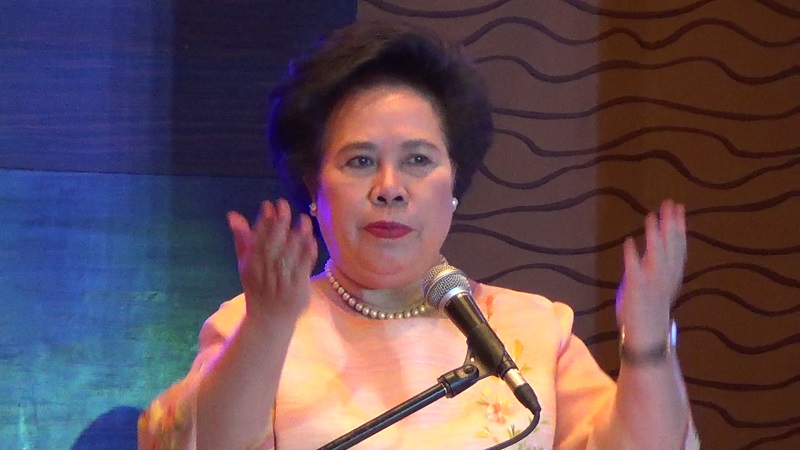12 senators break silence: Edca invalid, needs Senate agreement
Sen. Miriam Defensor-Santiago on Thursday said she and 12 other senators had signed her draft resolution expressing the view that the Philippines’ Enhanced Defense Cooperation Agreement (Edca) with the United States would be invalid without the Senate’s concurrence.
With the majority’s support, Santiago, chair of the Senate committee on foreign relations, said she would soon file the resolution stating that “the RP-US Edca treaty requires Senate concurrence, in order to be valid and effective.”
“Behold the Senate breaks its silence. The fact that we have not made a hue and cry about the Edca has apparently been misconstrued as acquiescence. In this resolution, we are saying that we will not allow the power of the Senate to be eroded,” she said in a statement.
The other senators who have signed the draft resolution are Sonny Angara, Pia Cayetano, JV Ejercito, Jinggoy Estrada, Teofisto Guingona III, Lito Lapid, Ferdinand Marcos Jr., Sergio Osmeña III, Aquilino Pimentel III, Ralph Recto, Ramon Revilla Jr. and Cynthia Villar.
Once adopted, the resolution would be sent to the Supreme Court as the Senate’s position on the validity of the Edca. The high court is deliberating on petitions questioning the agreement.
Article continues after this advertisementSantiago said the Senate majority’s support was an assertion that the President shared with the Senate the power to enter into treaties or international agreements, such as the Edca.
Article continues after this advertisement‘Constitutional mystery’
Malacañang has taken the position that the Edca is an executive agreement and not a treaty, and thus does not need the Senate’s concurrence. It said it was an implementing agreement of the Visiting Forces Agreement (VFA) and the Mutual Defense Treaty.
Under the Edca, US military forces would have access to and use of agreed locations in the Philippines, and could construct infrastructure. They could also preposition assets here.
“It is absurd to claim that the Edca is an implementing agreement to the VFA, which, in the first place, is alleged to be the implementing agreement to the ancient Mutual Defense Treaty. Moreover, the United States does not even recognize the VFA as a treaty,” Santiago said.
Malacañang’s contention that the Edca is an “executive agreement” is a “constitutional mystery,” the resolution said.
The only constitutional basis for the Palace’s position on Edca is the provision referring to “all cases involving the constitutionality of an … executive agreement,” which is one of the items included in the list of cases that the Supreme Court has the power to decide.
“There is no other provision in the Constitution concerning a so-called executive agreement, and there is no mention at all of its definition, its requirements, the role of the Senate, or any other characteristic of, or protocol for, any such so-called executive agreement,” the resolution said.
“‘Executive agreement’ is a term wandering alone in the Constitution, bereft of provenance and an unidentified constitutional mystery,” the resolution added.
2 provisions
In contrast to the lone mention of the term “executive agreement,” the resolution pointed out, there are two provisions speaking of the need for Senate concurrence on a treaty.
The Constitution states that no treaty or international agreement shall be valid and effective unless two-thirds of the members of Senate concur with it.
Another provision states that after the 1991 expiration of the bases agreement between the Philippines and the United States, foreign military bases, troops, or facilities shall not be allowed in the country except under a treaty duly concurred in by the Senate.
Under the rules of constitutional and statutory construction, the two provisions are specific ones, while the lone provision mentioning “executive agreement” is a general one. The specific prevails over the general, the resolution stated.
“The Constitution is clear and categorical that Senate concurrence is absolutely necessary for the validity and effectivity of any treaty, particularly any treaty that promotes foreign military bases, troops and facilities, such as the Edca,” it said.
Nonnegotiable power
The draft resolution is not an attempt to force the President to submit the Edca for concurrence by the Senate, it said.
The Senate is just taking a definitive stand on the nonnegotiable power of the Senate to decide whether a treaty will be valid and effective, it added.
